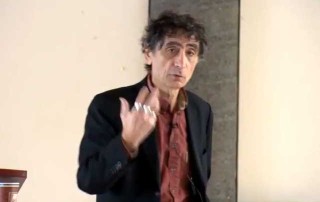In 2008, I attended a workshop given by Dr. Gabor Mate. He is a renowned expert in addiction, addiction treatment, and the impact of childhood stress on the developing brain. Needless to say, I learned more than I could write down and ultimately decided to put my pen down and just listen. What I did write down were the names of the books he has written. I then went and bought all four of them and started reading them all at once (hint #1). They were all full of awesome insight and scientific ammunition. Anyway, one of the books was called “Scattered Minds”, and it was a book about ADHD (Attention Deficit Hyperactivity Disorder). Since so many of my clients have been (or should have been) diagnosed with ADHD as children, I thought I should learn more about it. What I discovered as I madly devoured this book, was that I displayed almost all of the characteristic signs of ADHD and had done so throughout my life. I realize this is a common experience, even the subject of research, called “psych student syndrome” where people tend to over-identify with lists of signs and symptoms and diagnose themselves with every condition […]
10 Favourite Quotes from Dr. Gabor Mate
In no particular order, I present 10 of my favourite pieces of wisdom from Dr. Gabor Mate, bestselling author of “Scattered Minds“, “When the Body Says No”, “In the Realm of Hungry Ghosts”, and co-author of “Hold on to Your Kids”. 1. It is impossible to understand addiction without asking what relief the addict finds, or hopes to find, in the drug or the addictive behaviour. There is a purpose to all behavior and feelings. We just need to look a little deeper to find it. On the surface, addictive or self-destructive behavior seems illogical but if we focus its benefits, few though they may be, we will be able to unlock the mystery of the behavior and put ourselves in a position to change it. 2. The DSM … defines attention deficit disorder by its external features, not by its emotional meaning in the lives of individual human beings. I’ve noticed this in discussing the symptoms with doctors, even those who specialize in treating the condition. The list of symptoms and signs makes very little room for the emotional impact of poor time management, poor attentional control, lack of follow-through, impulsive behavior, and constant restlessness. The list doesn’t touch […]





Recent Comments